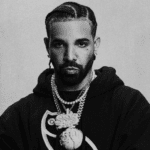
When Snowd4y, a Toronto parody rapper, released the track “Wah Gwan Delilah” featuring Drake via Soundcloud on Monday, June 3, it quickly went viral.
“This has to be AI,” one commenter wrote about the song. Many others echoed this sentiment, given the track’s outlandish lyrics and the unusual audio quality of Drake’s vocals. To date, neither rapper has confirmed or denied the AI rumors. Though Drake posted the track on his Instagram story, it doesn’t confirm that the vocals are genuine. As seen in Drake’s recent beef with Kendrick Lamar, the rapper isn’t afraid of using deep-faked voices.
To solve the mystery of “Wah Gwan Delilah”, Billboard contacted two companies specializing in AI audio detection to review the track. Unfortunately, the results were inconclusive.
“Our initial analysis shows SOME traces of AI, but there appears to be a lot of mixing involved,” wrote Romain Simiand, chief product officer of Ircam Amplify, a French company that creates audio tools for rights holders, in an email response.
Larry Mills, senior VP of sales at Pex, a company that specializes in tracking and monetizing music usage across the web, also found mixed results. He told Billboard that the Pex research and development team “ran the song through VoiceID matcher” and found that “Drake’s voice on the ‘Wah Gwan Delilah’ verse does not match as closely to Drake’s voice…[as his voice on] official releases, but it is close enough to confirm it could be Drake’s own voice or a good AI copy.” Notably, Pex’s VoiceID tool alone cannot definitively distinguish between real and AI voices, but its detection of differences between Drake’s voice on “Wah Gwan Delilah” and his officially released songs could indicate some level of AI manipulation.
A representative for Drake did not immediately respond to Billboard’s request for comment.
There are multiple tools currently used to differentiate between AI-generated music and human-made music, but these nascent products are still evolving and not definitive. As Pex’s Jakub Galka recently wrote in a company blog post about the topic, “Identifying AI-generated music [is] a particularly difficult task.”
Some detectors, like Ircam’s, use “artifact detection,” which identifies parts of a work that are inconsistent with reality. A clear example of this is seen with AI-generated images. Early AI images often contained hands with extra or misshapen fingers, and some detection tools exist to pick up on these inaccuracies.
Other detectors rely on reading watermarks embedded in the AI-generated music. While these watermarks are not perceptible to the human ear, they can be detected by certain tools. Galka writes that “since watermarking is intended to be discoverable by watermark detection algorithms, such algorithms can also be used to show how to remove or modify the watermark embedded in audio so it is no longer discoverable,” which he sees as a major flaw with this system of detection.
Pex’s method of using VoiceID, which can determine if a singer matches between multiple recordings, can also be useful in AI detection, though it is not a definitive answer. This technology is particularly helpful when users release tracks with Drake vocals online, whether they’re leaked songs or AI deepfakes. With VoiceID, Pex can inform a rights holder that their voice was detected on another track that might not be an official release.
When VoiceID is paired with the company’s other product, Automatic Content Recognition (ACR), it can sometimes determine if a song uses AI vocals or not, but there is not enough information on “Wah Gwan Delilah” to complete a full ACR check.
Though it can’t be definitively determined whether “Wah Gwan Delilah” contains AI vocals, parody songs have played a major role in popularizing and normalizing AI music. This is especially evident on TikTok, which is full of “AI Covers,” pairing famous vocalists with unlikely songs. Popular examples of this trend include Kanye West singing “Pocket Full of Sunshine” by Natasha Bedingfield, Juice WRLD singing “Viva La Vida” by Coldplay, Michael Jackson singing “Careless Whisper” by George Michael, and more.
Most recently, AI comedy music took center stage with Metro Boomin’s SoundCloud-released track “BBL Drizzy,” which sampled an AI-generated song of the same name. The track poked fun at Drake and his supposed “Brazilian Butt Lift” during the rapper’s beef with Lamar, becoming the first major use of an AI-generated sample. Later, Drake and Sexyy Red sampled the original AI-generated “BBL Drizzy” on their song “U My Everything,” propelling “BBL Drizzy” to new heights.


